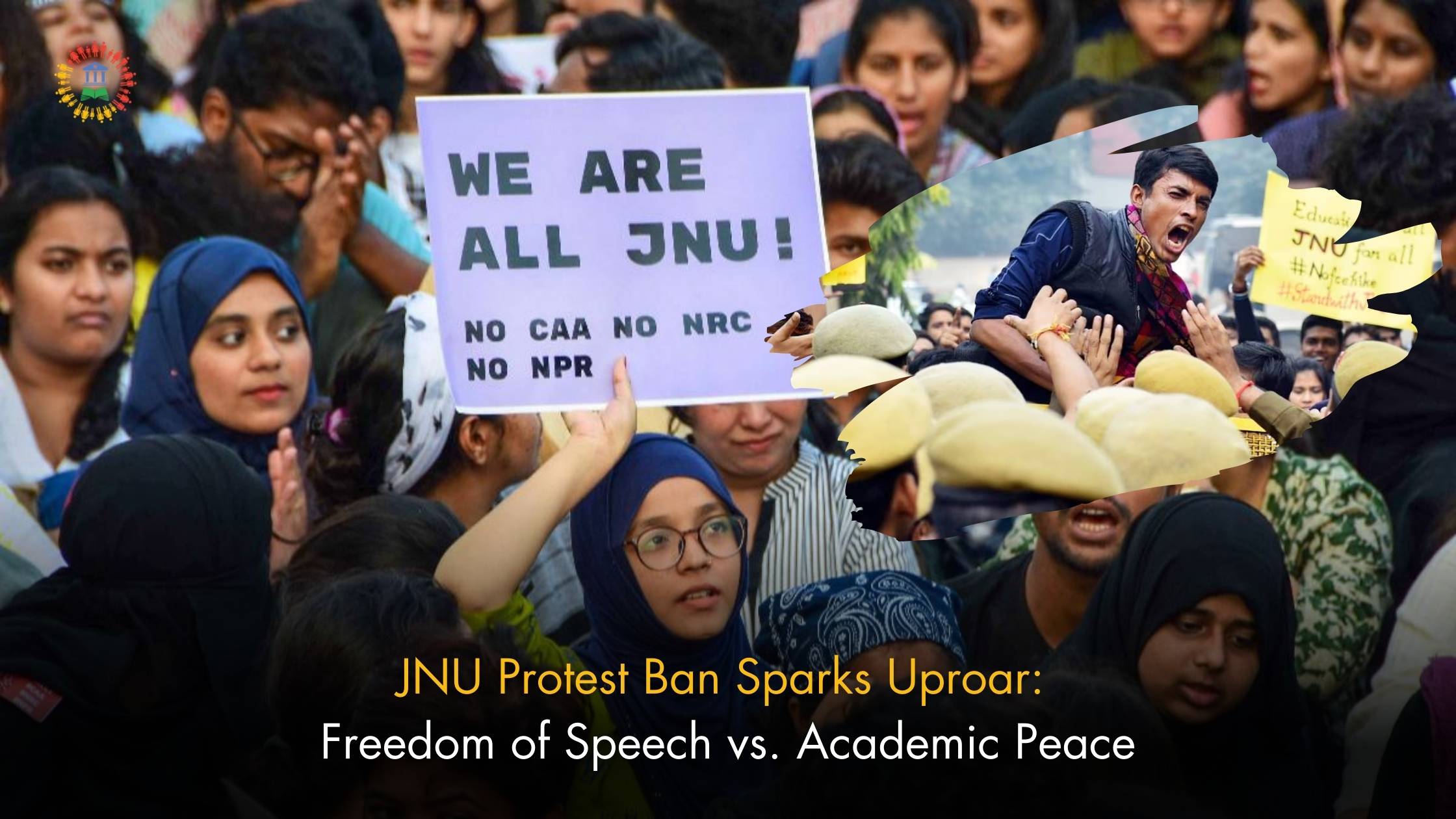
Jawaharlal Nehru University (JNU), known for its vibrant student activism, has ignited a firestorm with its new policy banning protests within 100 meters of any academic building. The move, met with fierce criticism from students and academics alike, raises crucial questions about the balance between freedom of speech and academic order.
Protests Silenced?
The new policy, implemented through a revised Chief Proctor Office (CPO) manual, imposes harsh penalties for violators. Fines of up to ₹20,000, temporary eviction from hostels, and even expulsion for up to two months are among the consequences for holding demonstrations or displaying protest materials within the designated zones. This significant expansion of restricted areas goes beyond the previous ban, which only prohibited protests near administrative buildings.
Student Dissent Erupts:
The student community has erupted in protest against the new policy, viewing it as a blatant attack on their fundamental right to dissent and express themselves. Many fear the vagueness of the regulations could be exploited to target any form of criticism against the administration, stifling legitimate discourse and academic freedom. Concerns have also been raised about the potential chilling effect on the historically strong protest culture that has been a hallmark of JNU.
Defending Order, or Stifling Discussion?
The university administration, however, maintains the policy is necessary to ensure academic peace and order on campus. They argue that frequent protests disrupt classes, research, and the overall learning environment. They also point to past incidents of vandalism and violence associated with some protests as justification for the stricter measures.
Uncertain Future:
The JNU protest ban has sparked a heated debate, with both sides presenting compelling arguments. While the administration seeks to maintain order, the student community fears the curtailment of their fundamental rights. With protests planned against the ban and the situation still developing, the future of dissent at JNU remains uncertain.
Further Discussion:
This issue is complex and multifaceted, demanding nuanced consideration. The need to maintain academic order is undeniable, but this should not come at the cost of silencing dissent and stifling critical thinking. Open dialogue and a commitment to finding a solution that upholds both academic freedom and peaceful protest are essential to ensure a vibrant and intellectually stimulating environment at JNU and beyond.
This article has provided a concise overview of the JNU protest ban, including key points, reactions, and potential consequences. It also encourages further discussion and critical analysis of the issue.